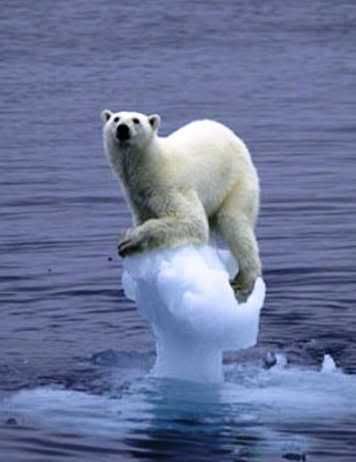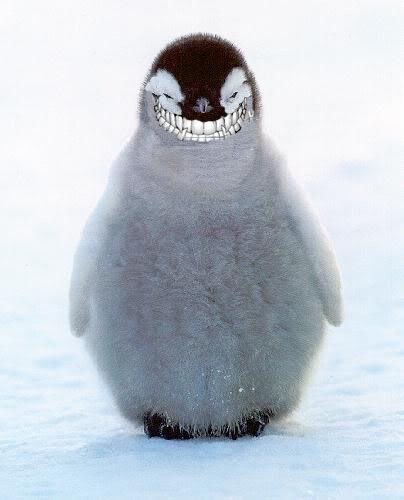Crossposted from Antemedius
 For years as the planet warms the arctic icecap has been melting and retreating.
For years as the planet warms the arctic icecap has been melting and retreating.
Many of us have long known that arctic wildlife like polar bears, gray whales, killer whales, narwhals, seals, and arctic fish and bird populations, as well as arctic coastal human settlements, are in danger of eventual extinction as their natural habitat has been retreating, but what most of us haven’t known is the extent and speed of the retreat.
Because of recent ice loss, Arctic surface air temperatures are warmer than normal, and much warmer than scientists expected to find.
As the ice has been melting the growing spans of open water absorb more sunlight than the ice previously did, so as more open water becomes uncovered, the remaining ice will melt more quickly. This will itself accelerate the rate of warming and lead to more ice loss. In addition, global climate change is likely to drive warmer ocean currents into the Arctic region.
You get the picture. What has developed is a positive feedback loop with dramatic implications for the entire Arctic, and for the rest of the planet, and for all life on Earth. It’s been nice knowing you.
The shrinkage of the Arctic ice cap is viewed with much alarm by climate researchers and scientists, as it appears to perturb important ocean currents elsewhere, notably the Gulf Stream, which gives western Europe its balmy climate.
Now a new report by scientists Muyin Wang of the Joint Institute for the Study of Atmosphere and Ocean and James E. Overland of the National Oceanic and Atmospheric Administration’s Pacific Marine Environmental Laboratory, is published in todays edition of the American Geophysical Union’s journal Geophysical Research Letters, forecasting nearly complete icecap loss by 2037:


 For years as the planet warms the arctic icecap has been melting and retreating.
For years as the planet warms the arctic icecap has been melting and retreating.